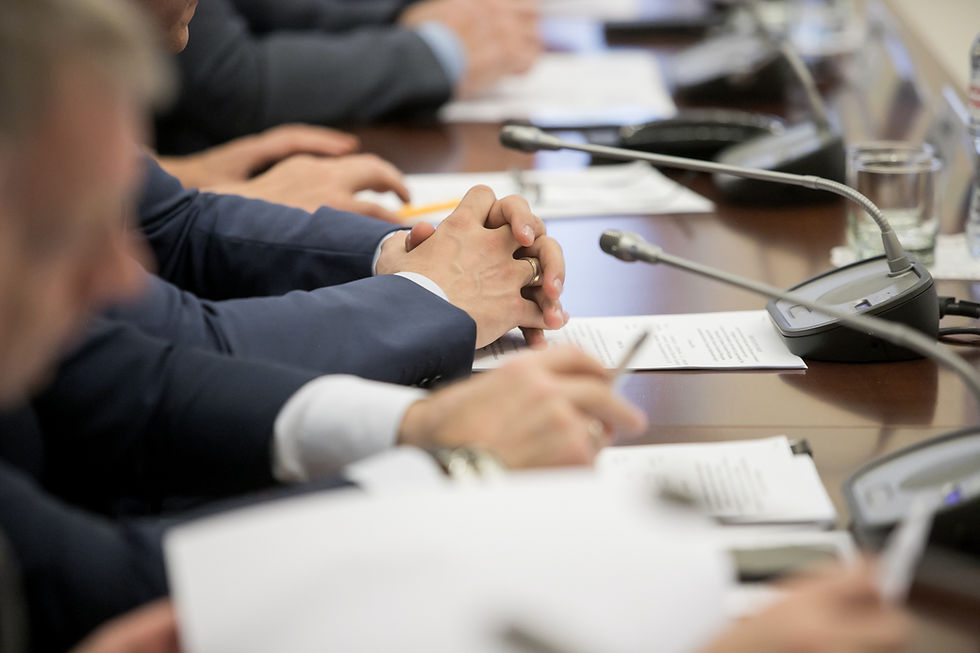Washington State Legislature Explores Cannabis Legislation in 2025 Public Hearings
- Alexis Hartwell-Gobeske

- Feb 5, 2025
- 3 min read
On February 4, 2025, the Washington State Legislature convened for a series of impactful public hearings centered on proposed cannabis legislation, highlighting the ongoing evolution of cannabis law within the state. With five key bills under consideration, legislators are examining the intricate balance between state oversight and local governance concerning cannabis business licensing—a matter generating considerable interest among lawmakers and community stakeholders.
One of the most notable proposals is HB 1835, introduced by Republican Assistant Minority Whip Brian Burnett. This bill aims to empower local officials and federally recognized tribes to override licensing decisions made by the Washington State Liquor and Cannabis Board (WSLCB). Under this proposal, local jurisdictions would be able to submit written objections when they believe a licensing decision conflicts with local zoning laws. Importantly, this bill seeks to broaden the definition of problematic practices, expanding it beyond “chronic illegal activity” to include any civil law violations associated with cannabis businesses. This shift has the potential to significantly influence how cannabis establishments operate in their respective communities.
Furthermore, Burnett introduced SB 5650, which proposes enabling counties and cities to impose a voter-approved excise tax of up to 2% on retail cannabis sales. While this tax could generate a new revenue stream for local governments, it may also ignite competition among jurisdictions, as only one local government can implement this tax at a time. This dynamic could lead to disparities in how communities leverage the burgeoning cannabis market.
The committee hearings also brought forth several other noteworthy proposals. In what has become an annual attempt, HB 1346 seeks to eliminate the residency requirement for cannabis business ownership in Washington, thereby making out-of-state investments more attractive. Currently, out-of-state investors may contribute capital only in the capacity of a financier. However, as raised by opponents of the bill, there is a risk that out of state ownership may be detrimental to the smaller 'mom and pop' sized businesses. In parallel, HB 1348 aims to clarify regulations regarding employee stock ownership plans (ESOPs) in the cannabis sector, addressing previous challenges that have hindered progress in this area.
Another significant piece of legislation, HB 1410, mandates the WSLCB to suspend licenses for cannabis producers that exhibit no commercial activity between July 2023 and December 2024. However, this regulation contains a provision allowing for the reissuance of these licenses if federal laws evolve to permit interstate cannabis commerce, underscoring the ongoing tension between state and federal regulations.
Lastly, HB 1551 proposes that both the WSLCB and the Washington State Department of Commerce prepare a report by December 2025, which will evaluate the initial implementation of the state’s social equity program. This measure aims to ensure that subsequent rounds of the program are delayed until at least July 2026, providing ample opportunity for a comprehensive assessment of successes and shortcomings.
As these legislative discussions unfold, it becomes increasingly clear that the Washington State Legislature is navigating complex issues surrounding cannabis law. The ongoing struggle to find the right balance between state authority and local control, coupled with concerns about community safety and the demand for fiscal solutions, constitutes a pivotal narrative in the state's cannabis landscape. For stakeholders invested in the cannabis industry or local policy-making, monitoring these developments will be essential in the months ahead. The legislative framework is shifting, and the implications of these changes could significantly influence the future of cannabis regulation in Washington for years to come.




Comments